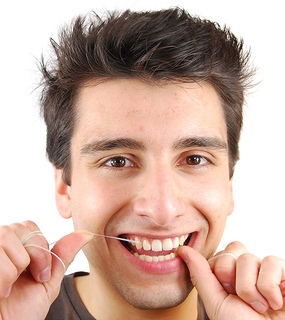Digital X-rays
January 24th, 2024

X-rays are a vital diagnostic tool for any dental professional. X-rays help your endodontist perform a root canal, your orthodontist check the position of a tooth’s root, your oral surgeon discover a fracture. X-rays reveal what we can’t see with the naked eye—and that’s why they are an especially important tool for Dr. Welmilya Francis-Davis as well.
Why Are X-rays Necessary?
There’s a lot going on below the surface. An X-ray can reveal such conditions as cavities between teeth or underneath fillings, abscesses and other infections in the bone, impacted wisdom teeth, and cysts and tumors. They can also show the size, shape, and density of the bone beneath the teeth, which is essential information for dental implant procedures or dentures.
How Do X-rays Work?
Traditional X-rays, or radiographs, make use of film just like traditional cameras. When you have an intraoral X-ray, for example, the film is sealed in a moisture- and light-proof packet, and placed inside the mouth to capture images of specific teeth and the bone around them.
The X-ray machine is aligned precisely with the film and an exposure is taken. The image at this point is latent, and won’t show on the film, because, just like photo film, traditional radiographs need to be chemically processed before they produce a visible image.
Digital technology, on the other hand, uses an electronic sensor instead of film. For an intraoral digital X-ray, a small sensor is positioned in the mouth just like a film. When the X-ray is taken, a digital image capture device produces an image which is formed by a matrix of pixels instead of a photo-like film exposure. This format allows the image to be sent directly to a computer for immediate display without requiring processing.
Even though these methods seem very similar, digital X-rays offer some significant advantages over traditional films. Let’s look at how they compare, more or less.
- More Diagnostic Advantages
A traditional X-ray is a fixed image. It cannot be modified or enhanced. Here the digital X-ray offers a clear advantage in diagnosis.
Just as you can enlarge certain types of images on your computer without blurring or losing detail, a digital X-ray uses computer software to magnify images while keeping their details sharp. They can also be enhanced through brightness and contrast applications to make details stand out even more. Both of these benefits are extremely helpful for diagnosis, especially when looking for small cavities, problems in the roots and surrounding bone, or developing wisdom teeth.
There is even digital subtraction radiography software available that can be used to compare recent images to older ones, removing (“subtracting”) all the similarities in the two images to display only the changes in the two—even small changes—that have taken place over time.
- Less Exposure to Radiation
Dental X-rays expose patients to very low levels of radiation, and modern technology means traditional X-rays expose patients to less radiation than ever before. Even so, digital X-rays have significant advantages. Radiation exposure can be reduced by an additional 10%, 20%, or more with a digital radiograph.
- More Convenient for Sharing and Transmitting
If you need to share your X-rays with another dental specialist or physician, digital technology allows you to simply have them e-mailed to another office or multiple offices. You no longer need to worry about preserving physical copies, either.
- Less Waste
Unlike traditional X-rays, digital X-rays don’t need to be processed, so you save time in the office. And while the processing time is not significant (usually several minutes), if you need to repeat some X-rays for a clearer picture, or require different images for several teeth, this time can add up.
Digital X-rays are also more eco-friendly. The fact that they don’t need to be developed means that the chemicals used to process traditional films are no longer necessary—which also means that there is no need to dispose of chemical waste products afterward.
Our goal is to provide you with the safest, most efficient, and most effective dental treatment possible, and digital X-rays help us do that. If you have any questions about digital X-ray technology, contact our Nassau office. We’re happy to explain the science—and the benefits—of high-tech radiography.





